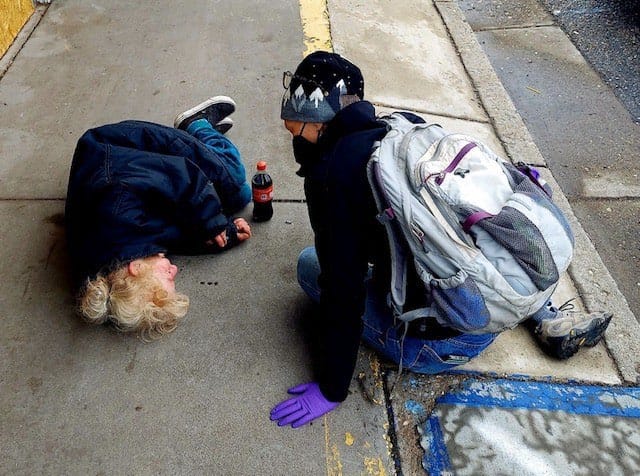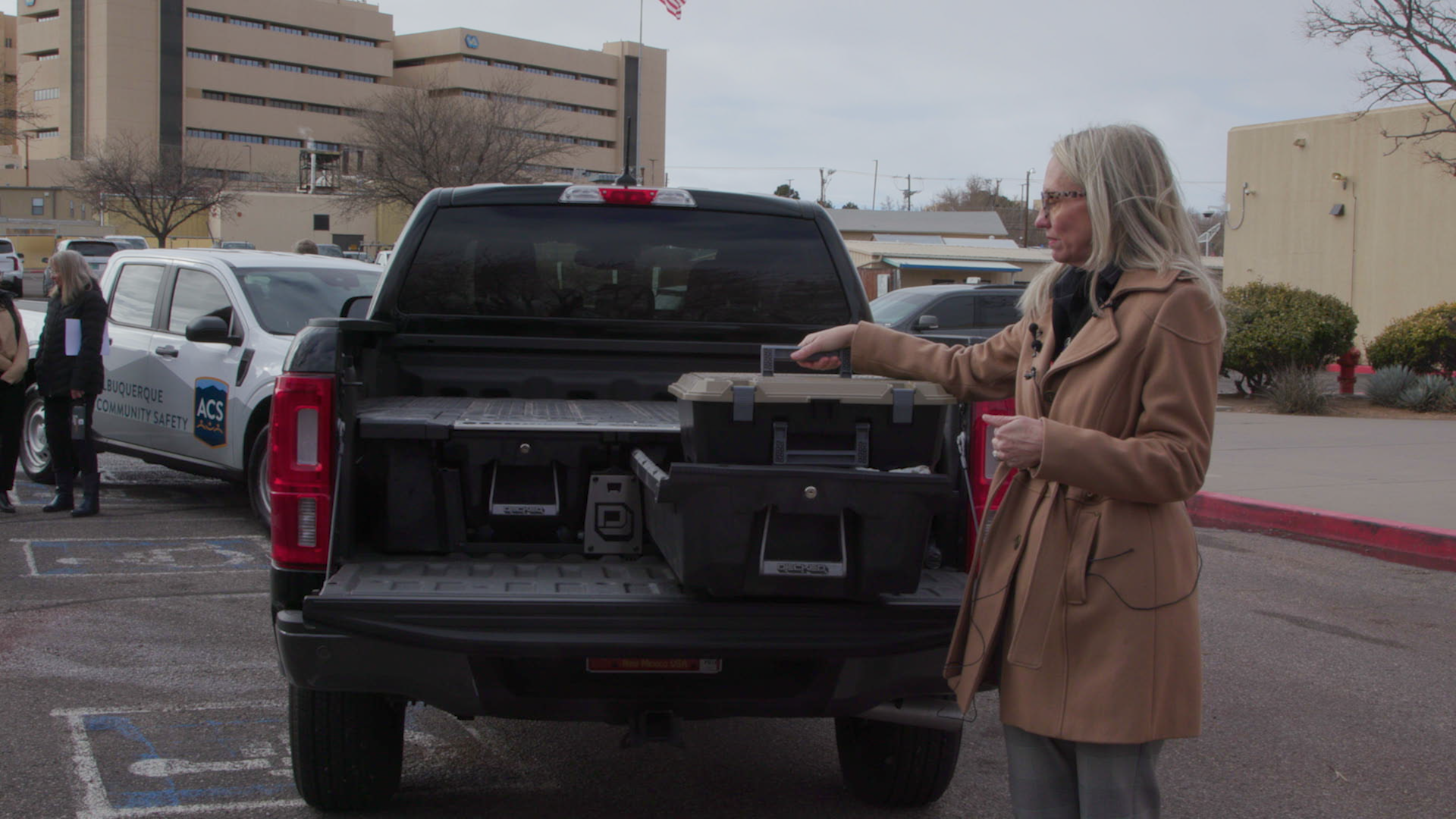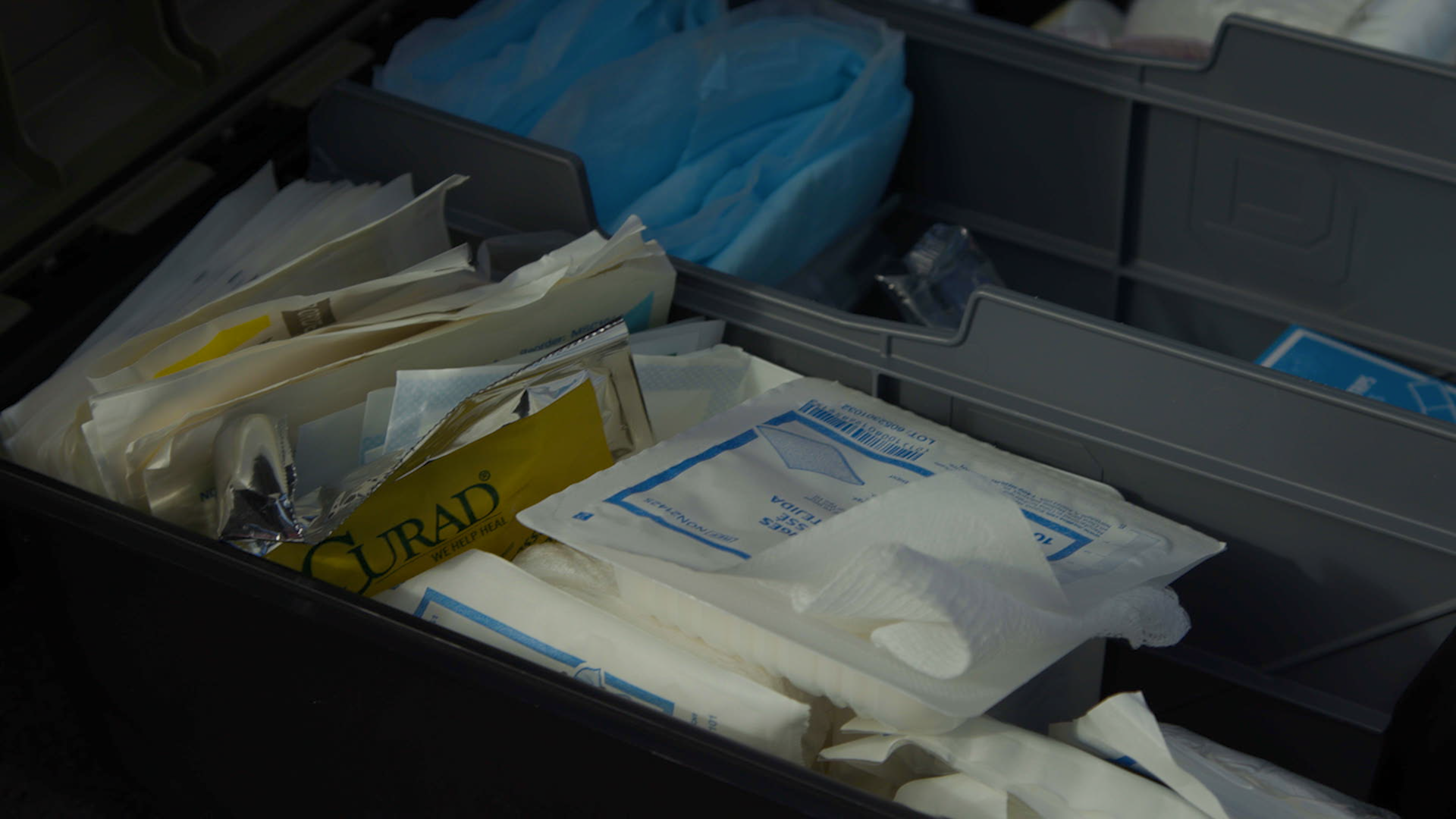New Mexico Cares: Street Docs Keep It Real Despite SCOTUS Ruling
Learn more about UNM Center for Inclusive Health's Street Medicine team, which brings backpack-powered healthcare to the unhoused.

by Kristin Satterlee
On June 28, the US Supreme Court empowered cities to punish unhoused people for their situation. The Grants Pass ruling decided that arresting or fining people for sleeping outside—even when no other options exist—is not “cruel and unusual punishment.”
SCOTUS sides against unhoused
The court’s ruling further inflamed an ongoing national debate about how to address housing. Advocates for the unhoused are furious, and municipalities are weighing their enforcement and support strategies.
Backpack-powered healthcare
This uproar isn’t deterring Lindsay Fox and the street medicine teams of UNM’s Center for Inclusive Health. Teams set out three times a week, working mostly with the unhoused and precariously housed. Fox is a licensed physician’s assistant (“PAs are jacks-of-all-trades,” she explains); her team includes an MD and a medical assistant, psychiatric staff one day a week, and “buddies” from Albuquerque Community Safety (ACS).
“We just [say,] you know, what brings you in today? And really trying to stay patient-centered. And we work out of a pickup truck.” When they aren’t in the truck, the team walks the streets with backpacks full of medical supplies and snacks to share. People call her the Goldfish Lady, Fox says, because she always has packs of Goldfish crackers.

“What do you need help with?”
That simplicity is intentional, reducing the feeling of power imbalance that a fancy rig might provoke. Pop-up clinics with a family reunion vibe follow the same strategy: a farmer’s market-style tent and lawn chairs are set up in different places several times monthly.
“People just sit and we sit with them. We have water, we have snacks, and just lean in and say, ‘Hey, how are you? What do you need help with? What can we do?’”
Conversations start with the patient’s medical needs, and may move on to housing resources and assessments, clothing, IDs, and even pet care. Pop-up clinics include food, water, and other services for pets. “And that goes a long way. Like, look, we're helping you care for the soul that you love the most, this puppy—let's care about you now.”
New Mexicans care
Fox was raised in Albuquerque and returned after her schooling specifically to do this work, largely because of New Mexico’s greatest resource: New Mexicans.
“New Mexicans care about their neighbors. You know, we're not a rich state, but we do have this ability to lean in when people are suffering. I think New Mexicans have shown incredible resiliency and incredible compassion.”
Put the patient in the center
Despite the Supreme Court’s ruling, Fox isn’t worried that New Mexico and the city of Albuquerque will turn their backs on people struggling with housing. “My experience has been that the city has been very mindful about what's best for patients and people. As Mobile Medical and Center for Inclusive Health, we're still just gonna see folks.”
“When we all get together and put the patient in the center, we can do really great things.”
Learn more at bit.ly/streetmedicineinabq.

